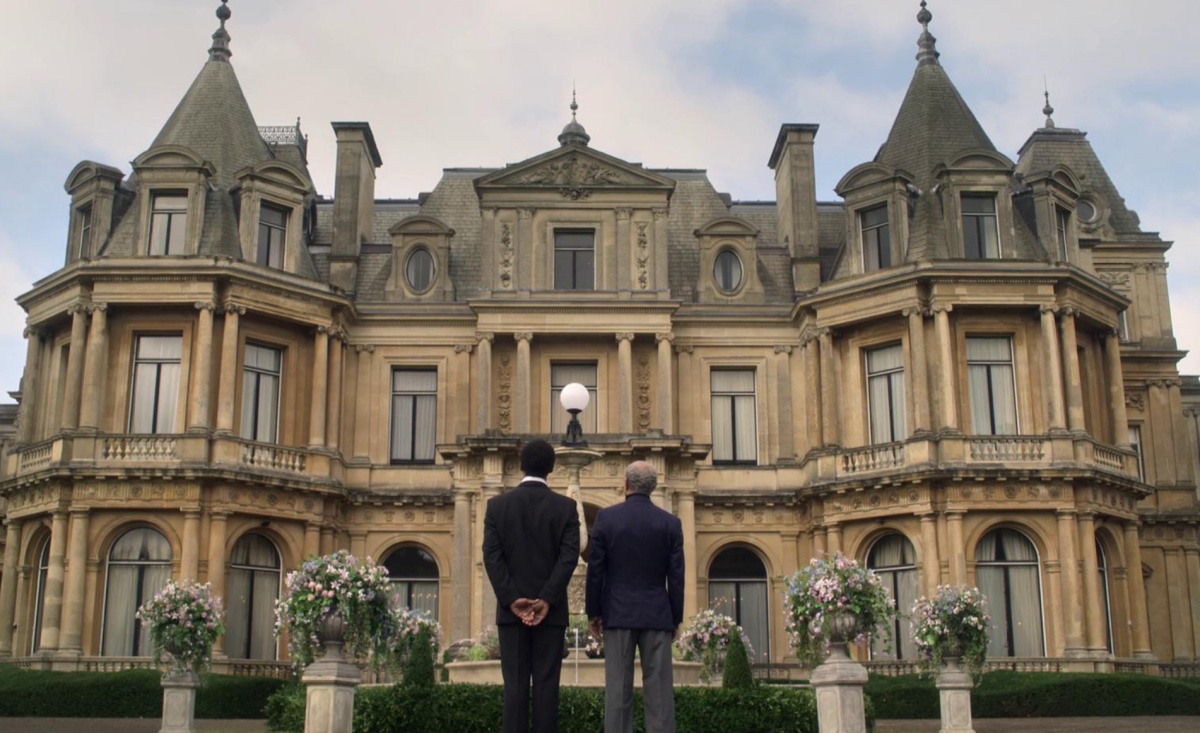Who Was the Real Sydney Johnson, Valet of the King?

On this latest, and strangely controversial season of The Crown there is an episode spent on the Al-Fayed family, specifically the patriarch Mohamed Al-Fayed. The family will be even more important in the next season when Mohamed’s son, Dodi becomes romantically involved with Princess Diana and later dies with her in their infamous car crash. In “Mou Mou,” we watch Mohamed rise within the ranks of the British establishment with the help of a Black former valet to David, Duke of Windsor, Sydney Johnson.
The episode begins with a flashback that links young Mohamed with a young Sydney. The Duke and Duchess of Windsor arrive in Mohamed’s homeland of Alexandria, Egypt. It is there that Mohamed decides to become as powerful as the British that rule over them. David and his wife Wallis decide to take Sydney on as their personal valet and he would support the Duke for the next 30-years. We actually saw/heard Sydney be mentioned in “Dangling Man” from season three, but now we get some more insight into the man.
In the present day, Mohamed manages to buy the Ritz, which at this point is failing, and reopens it with style. When he sees Sydney, a Black man, he tells his son Dodi to fire him. That is until Dodi reveals Sydney’s illustrious former job. Now, Sydney becomes Mohamed’s personal valet and helps him learn to maneuver the world of the British Gentlemen as he was taught by a former King of England. Sydney dies toward the end of the episode but managed to turn Mohamed into a power player who blends into society. The episode left people wondering if Sydney Johnson was indeed a real person.
During World War II, the Duke and Duchess were sent to the Bahamas to keep them from becoming power players during the war. It was during that time that Sydney Johnson came into their employment. At the age of sixteen, he moved with the couple to Paris and worked for them for over thirty years. The Crown seems to have put a pretty gauze over the relationship somewhat, ignoring that Johnson had four children of his own and left the Duchess’ service when she refused—according to People—to give him a new schedule to take care of them following the death of his wife. That feels more in line with Wallis Simpson.
Johnson would then go to work for Al-Fayed and assist in the restoration of the villa until his death in 1969. In his obituary, Al-Fayed was quoted as calling him “truly a gentlemen’s gentleman. We shall miss him very much.”
While we don’t know much about Johnson from the few sources we have on the record, or The Crown, what is clear is that for a 30-years he had a front-row seat to the ins and outs of the British royal establishment. While the Duke was exiled and persona-non-grata, he was still a member of the Royal Family, and a former king. The moment I found most interesting is how dismissive Al-Fayed was of Johnson until he found out who he worked for. There is a lot of conversation about how Black people across the diaspora are treated in relation to each other. What gave Sydney value in the eyes of others was his perceived approximation to whiteness, not his years of experience.
Choosing to highlight Sydney Johnson in an episode of The Crown is an interesting choice. Yes, he is part of the Al-Fayed story, but you don’t have to put Johnson in it as fully. It did make me think about the fact that a year ago it was revealed that Buckingham Palace banned ethnic minorities from office roles starting in the 60s and that it currently only had 8.5% ethnic minority staff. How that broke down (high and lower-quality jobs) wasn’t made clear, but it was striking considering that most of the staff is apparently employed from London, a city that is getting less white every year. For all the controversies the Royals were afraid of, I don’t think being shown to have been worse at diversity hiring than their racist great-uncle was on the list.
(image: Netflix)
Have a tip we should know? tips@themarysue.com